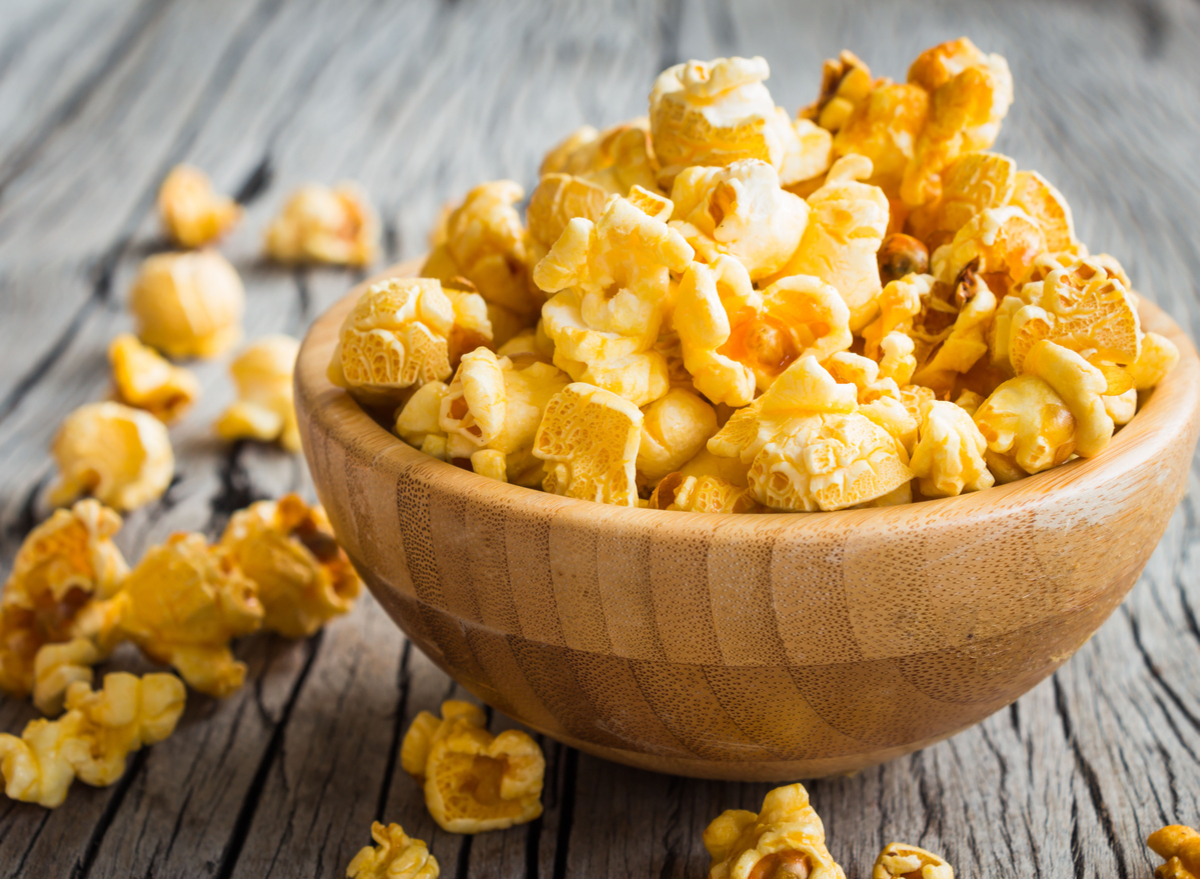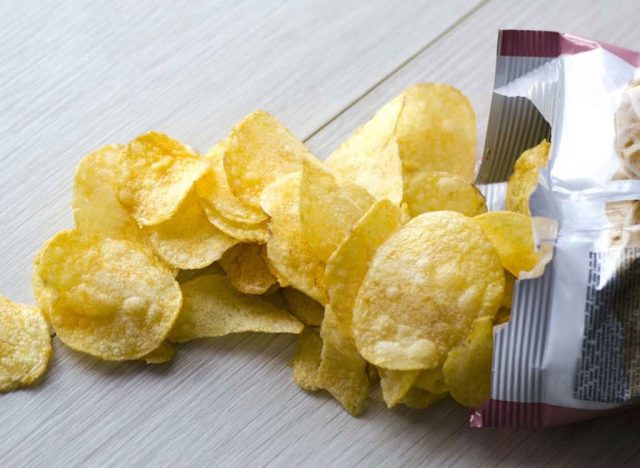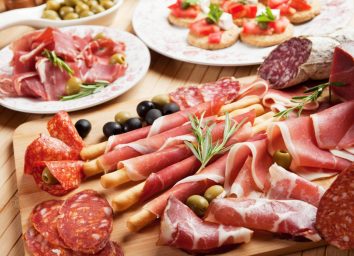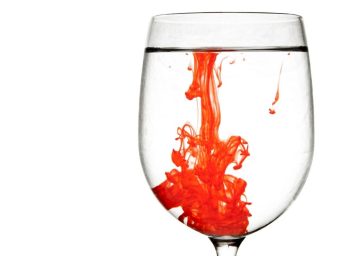What Is Partially Hydrogenated Oil? And Why It's In Your Food

Did you know that partially hydrogenated oil may be lurking in that microwaveable popcorn bag in your pantry? It may also be hanging out in the coffee creamer you add to your morning brew. Unfortunately, many commonly consumed foods contain this very unhealthy fat. Here's what you need to know about partially hydrogenated oil.
What is partially hydrogenated oil?

Partially hydrogenated oil (PHO) is a solid form of vegetable oil that has undergone hydrogenation. This process adds hydrogen molecules to the liquid vegetable oil and transforms it into a solid at room temperature. During this process, trans fat forms. Trans fat is the worst type of fat to consume because it lowers your body's "good" cholesterol and raises the "bad" kind.
What are trans fats?
Vegetable oil chemically alters to form partially hydrogenated oil during the hydrogenation process. PHO contains trans-fatty acids (trans fat). Two types of trans fats exist. The naturally-occurring trans fats are found in trace amounts in foods such as dairy products and meats. It is unknown how these naturally occurring trans fats affect health. Then there are the artificial trans fats, which are made through the hydrogenation process that creates partially hydrogenated oil. Partially hydrogenated oils are the primary source of trans fats in fried and processed foods. Avoid these proven unhealthy trans fats. Here's what science says about The Dangerous Side Effects Of Eating Fried Foods.
Which foods contain partially hydrogenated oil (trans fats)?
The U.S. Food and Drug Administration (FDA) has deemed PHOs no longer "generally recognized as safe." As of June 18, 2018, manufacturers cannot add partially hydrogenated oils to foods. However, some foods may still contain PHO today. In these cases, the foods were part of a manufacturing process that began before the FDA's cut-off date. These types of foods may include:
- Microwaveable popcorn
- Vegetable oil
- Vegetable shortening
- Bakery items made with margarine or vegetable shortening
- Non-dairy coffee creamers
- Potato and corn chips
- Pre-made pizza dough
- Frosting
Before consuming these foods, read the labels to ensure they do not contain partially hydrogenated oil or trans fats.
What is the purpose of partially hydrogenated oil?
Manufacturers initially used partially hydrogenated oil to increase the shelf life of foods, add flavor, and save money. It was an inexpensive substitute for lard and butter because it improved food texture.
What are the health risks of partially hydrogenated oil?
Partially hydrogenated oil is high in trans fat and, when consumed, may contribute to cardiovascular disease, raise cholesterol and triglycerides, and increase the inflammatory response in the body. Trans fats increase a person's risk of a stroke and heart attack by raising the low-density lipoprotein (LDL) cholesterol levels in the body and lowering the high-density (HDL) levels. LDL cholesterol causes buildup on the arterial walls, while HDL cholesterol gathers excess cholesterol and carries it to the liver for metabolizing.
Higher levels of trans fat consumption have been linked to worsened memory function, according to a study conducted in 2015. This study found that for every additional gram of trans fat a person consumed, their memory recall performance on tests fell by 0.76 words on average. These are startling findings.
How to limit trans fat in your diet
Foods that don't contain trans fats aren't necessarily healthy. Many manufacturers replace trans fats with other unhealthy substitutes such as palm kernel oil and palm oil. When possible, replace trans fats with polyunsaturated and monounsaturated fats. Read the nutrition labels and avoid foods that include partially hydrogenated oils. According to the FDA, companies can label foods as free of PHO (trans fat) if they contain .5 grams or less per serving of trans fat.
According to the American Heart Association, people who need to lower their LDL cholesterol should reduce trans fat and saturated fat intake to 5–6% of daily calories.
A healthier option includes monounsaturated fats like:
- Extra virgin olive oil
- Safflower oil
- Avocado oil
- Canola oil
- Peanut oil
Further limit unhealthy fats in your diet by:
- Broiling and baking your foods instead of frying them.
- Limiting the consumption of packaged and processed foods.
- Noshing on healthy snacks such as carrot sticks, bananas, plain yogurt, and nuts.









